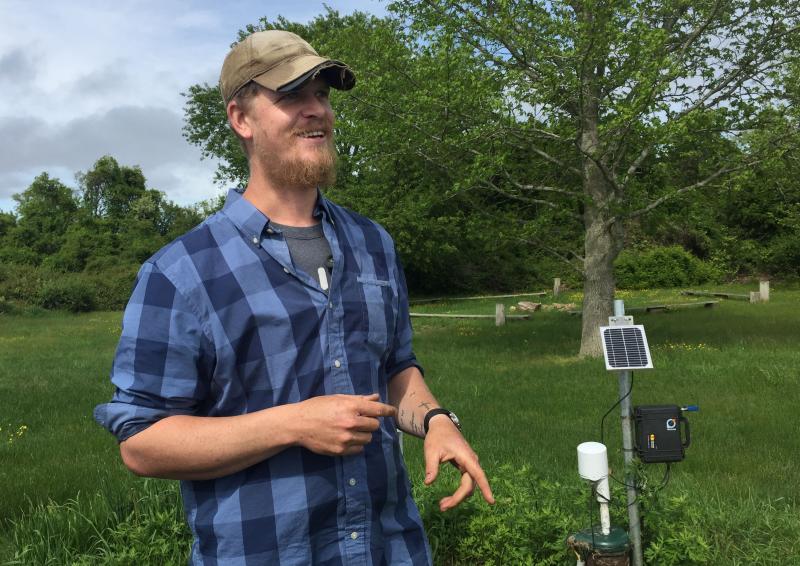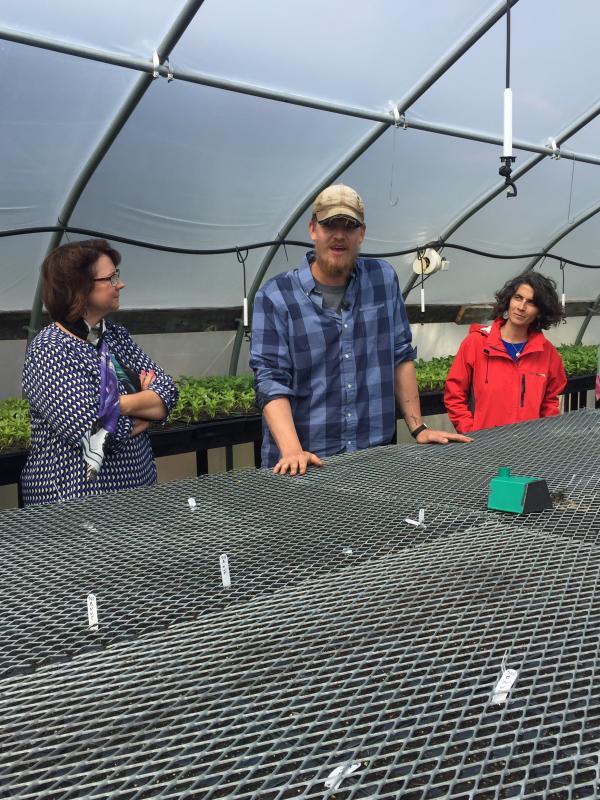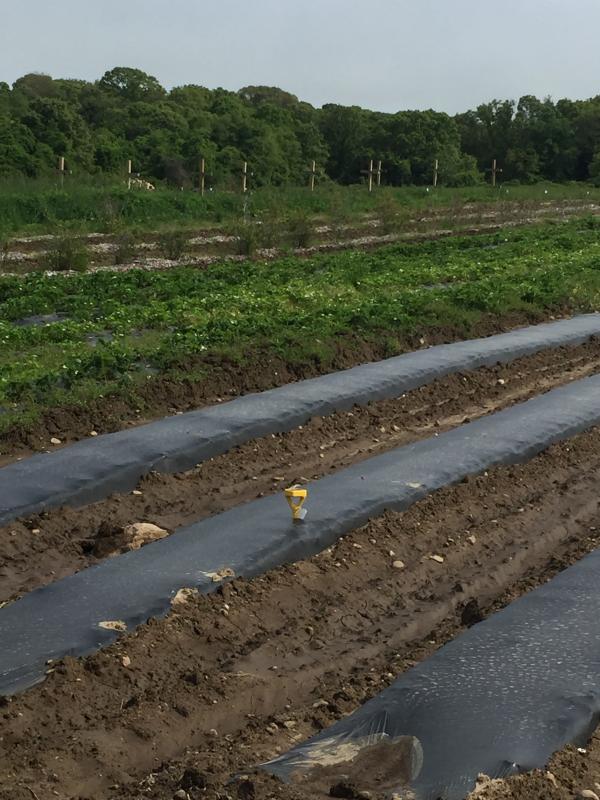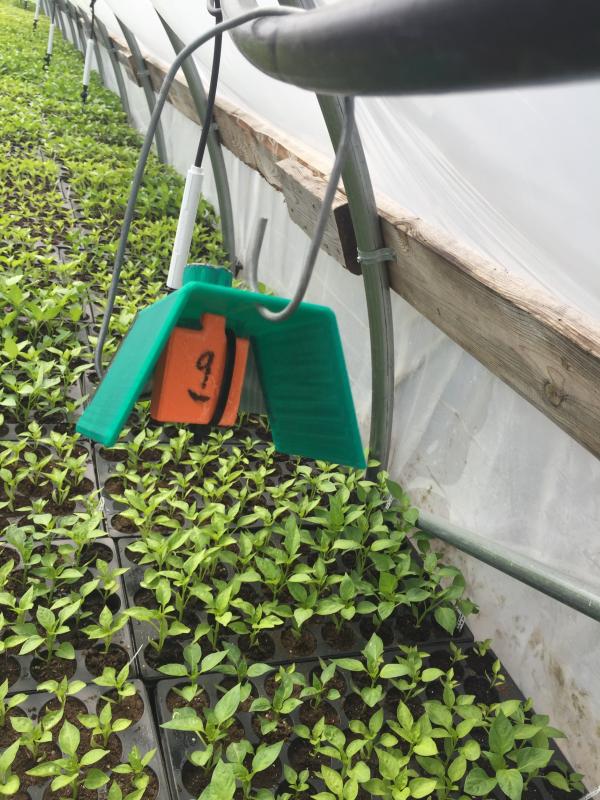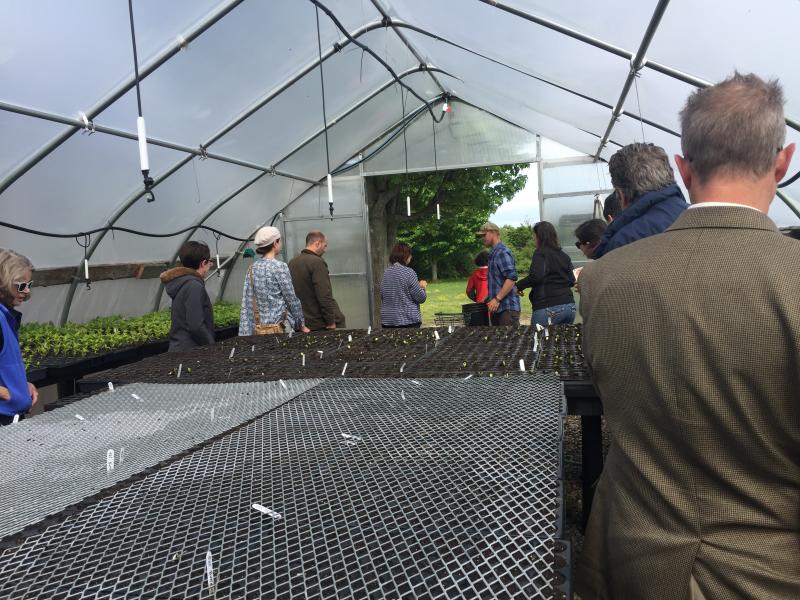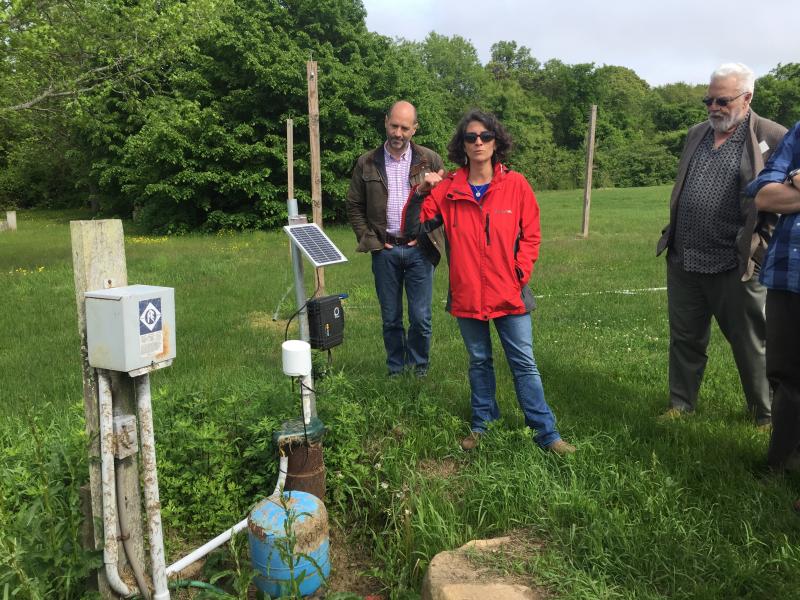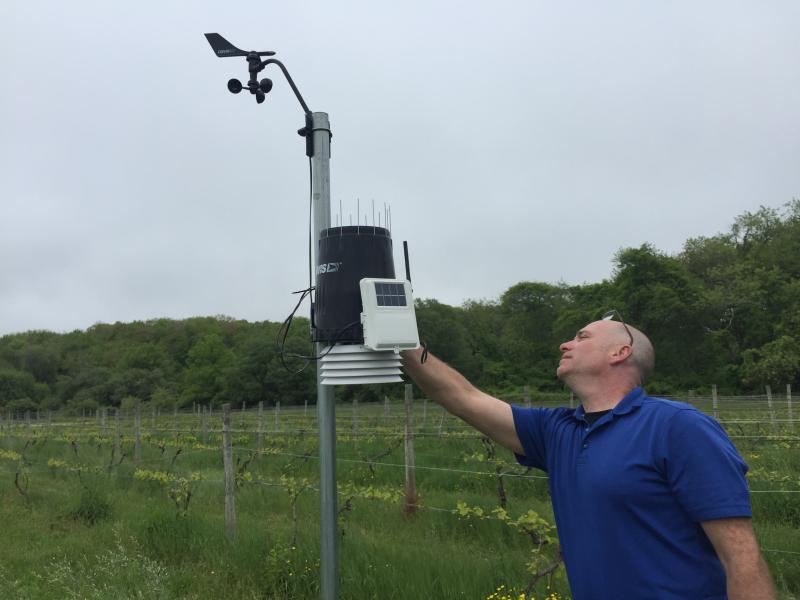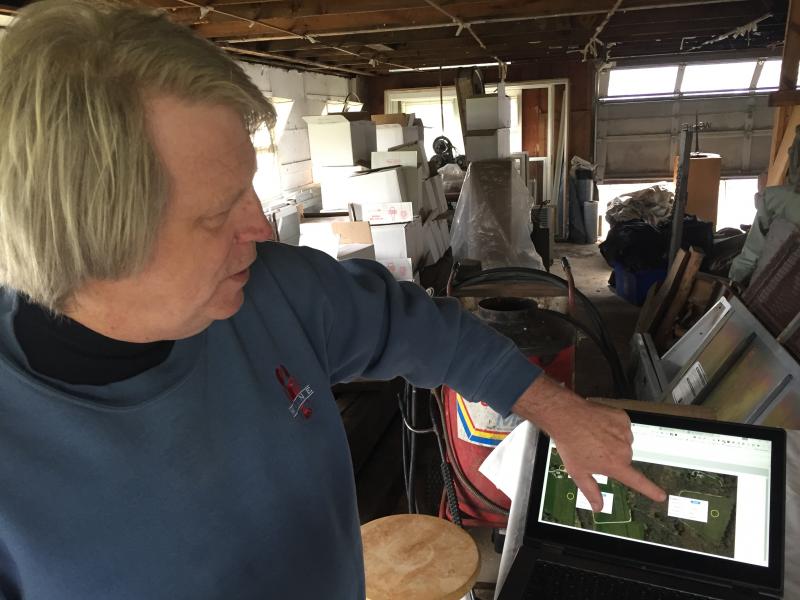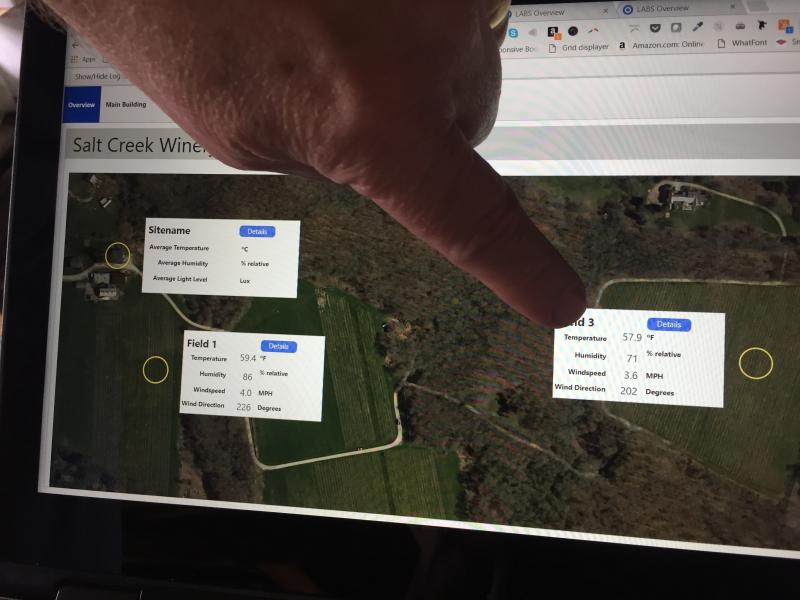How mass data collection is helping Dartmouth farmers
Farm Director Dan King has a chipmunk problem. In one afternoon, Chip and Dale dug up 3,000 seeds from the Sharing the Harvest Community Farm greenhouse. That’s time and money lost, said King.
ImpactLABS has a solution. While they’ve equipped King with five Fenway sensors — which monitor temperature, light, and humidity across the 60-foot greenhouse — the New Bedford-based company will upgrade him to Aerotech sensors this month.
The new sensor has motion detection. While the sensor itself won’t deter chipmunks, it will provide King with real-time data that could help him combat chipmunk invasion, without using traps.
The sensors are one of three technologies currently on the Gulf Road property. Installed by ImpactLABS, the technologies measure elements including humidity, temperature, and ground water levels to help King improve the growing season.
The two-year-old ImpactLABS, however, connects big tech companies like Dell to businesses like Sharing the Harvest, explained said Liz Wiley, food security lead at ImpactLABS. Farmers receive free technology installations that provide them with real-time data that can impact their practices, while the companies in return receive feedback from its target population on pilot instruments. This exchange further impacts the design and price point of developing industry technology.
“Data is becoming more and more powerful. It is the new currency,” said Wiley. “[Farmers] not only have access to that data, but they own that data.”
ImpactLABS is currently working with three Dartmouth growers — Sharing the Harvest, Salt Creek Vineyards, and Quansett Nurseries. Company staff led a tour of the former two on May 30 to show the 20 visitors how the data-collection concept works.
King said the Fenway sensors have been valuable, because they’ve confirmed his suspicion that conditions vary across the greenhouse due to the amount of sunlight exposure.
“It’s kind of cool to have proof of things you assumed,” said King. With the information, King is able to move his plants effectively, so they aren’t stumped by too much heat or humidity.
Another instrument that King has been able to take advantage of is the WelIntel. Equipped with sonar, the device reads groundwater levels, and records pumping activity and recovery rates. There are 20 such devices deployed in South Dartmouth, said Wiley.
“We had a drought here last summer, but knowing he had water was a complete peace of mind,” she said. After only having the WelIntel for a few months, King was also able to identify a leak in the irrigation system.
Also installed on the Sharing the Harvest farm is the Edyn soil sensor. It’s a common sensor used by gardeners, and can be picked up at Home Depot, but ImpactLABS used it as a building point for a soil sensor that farmers can use.
While the device measures the air temperature, light, humidity, and the nutrients in the soil, it’s still lacking, said King.
“It’s not my favorite sensor. It doesn’t tell me the one thing I want to know, which is what temperature the soil is,” he said. He added that the device only runs six-inches deep, and he needs info on soil 18-inches deep. Also, the device is limited to a 300-foot Wi-fi range, which affects where he can use them.
Adjacent to Sharing the Harvest, two mini-weather stations are set up on Salt Creek Vineyards on Bakerville Road. Owner Skott Rebello mostly uses its humidity and wind measurements to effectively spray fungicides on the grapes.
“With the amount of humidity, fungus is a huge problem,” he said. Rebello also explained that between his three grape fields, the conditions vary significantly due to elevation and proximity to the ocean.
“All [seven grape varieties] grow differently, so they all have to be treated differently,” he said. “Some chemicals are water sensitive, so knowing humidity levels is huge.”
Rebello — who collects rain water as well as uses town water — has also tested a water quality sensor for the past year. He’s noticed that the pH measurements are inconsistent. pH levels can impact his water treatment methods, so this year, he’ll get a new water quality sensor.
“At the end, Skott’s going to be able to find the best practices with somewhat of a support team,” said Wiley.
ImpactLABS not only works to impact food security, but also connects tech companies to small- to mid-sized businesses in the water, energy, and transportation sectors. The three farms were chosen due to connections in the area.
